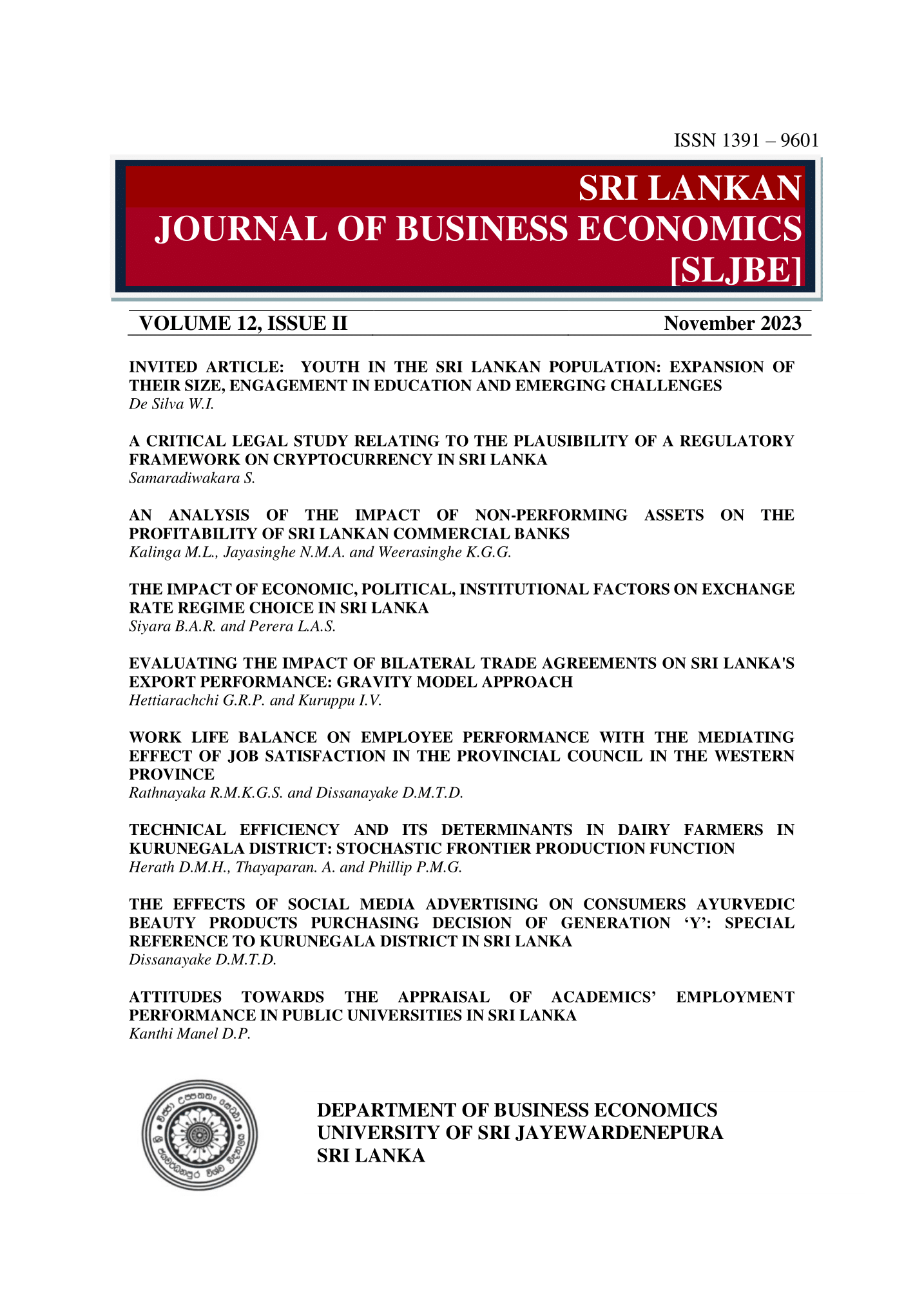THE IMPACT OF ECONOMIC, POLITICAL, INSTITUTIONAL FACTORS ON EXCHANGE RATE REGIME CHOICE IN SRI LANKA
DOI:
https://doi.org/10.31357/sljbe.v12.6794Abstract
This study investigates the impact of economic, political, and institutional factors on the choice of an exchange rate regime in Sri Lanka from 1972 to 2020. Since the exchange rate regime in Sri Lanka has recently been vulnerable due to the late 2021 and early 2022 economic and currency crises followed by economic, political, and institutional volatility, it is important to investigate the impact of such factors on the exchange rate regime. This study aimed to fill specific empirical and practice gaps, and it addresses the empirical gap by examining Sri Lanka and identifying certain contradictory results in the literature. There are conflicting results for the same variable in the literature because of the different economies being tested, which is obvious. This study addresses the practice gap by examining the recent economic and currency crisis in Sri Lanka, which led the researchers to conduct the study for Sri Lanka. The study's dependent variable is categorical and comprises three choices: pegged, intermediate, and floating. The thirteen independent variables were categorized under three main determinants: economic, political, and institutional. A multinomial logistic regression predicted the model. According to the study’s findings, all the economic variables are statistically significant except international reserves and globalization compared to an intermediate regime. None of the political stability variables are significant in Sri Lanka. Left-wing government (government ideology) is robust among the institutional quality determinants, although the result is ambiguous. According to the results, economic factors lead the way in determining the exchange rate regime in Sri Lanka.

